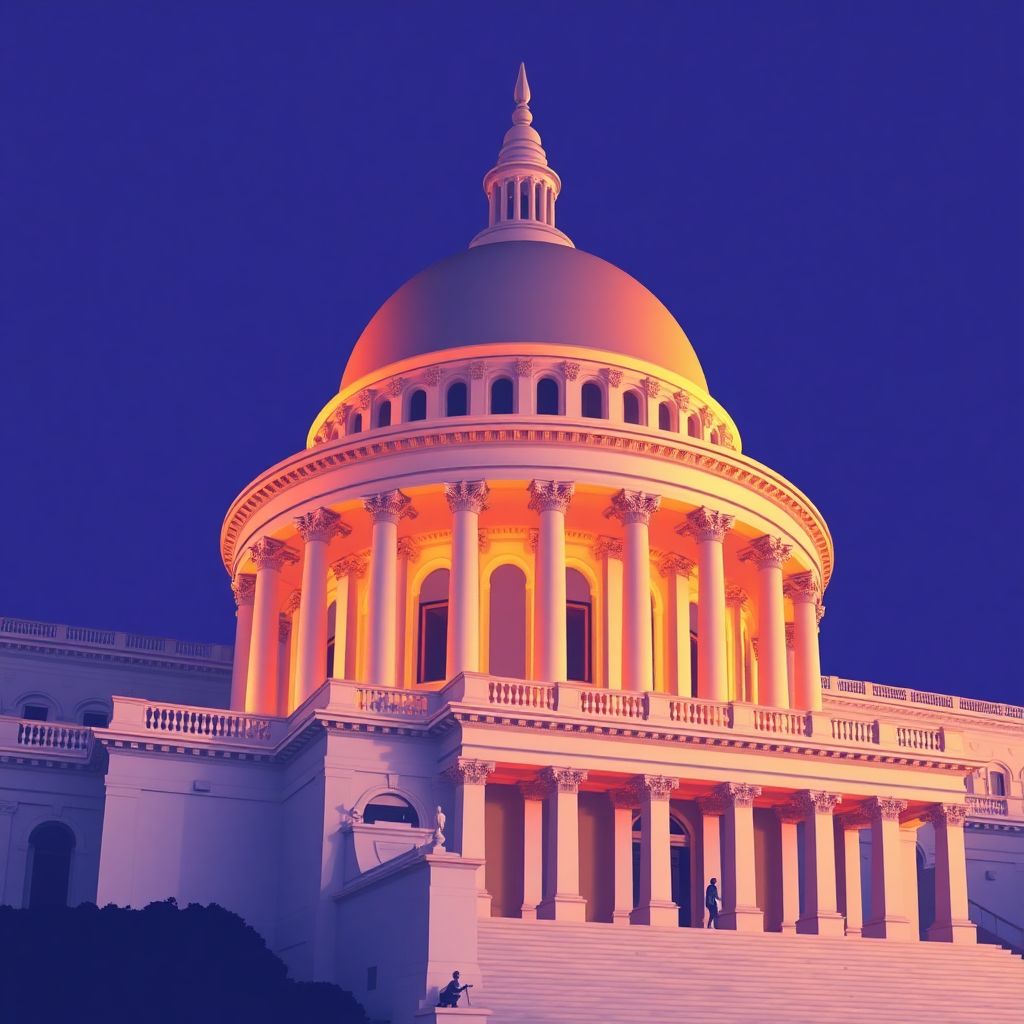Inside Washington’s escalating crypto conflict, a battle is brewing over the future of digital asset regulation. Tensions mounted this week as U.S. Senators and top executives from leading cryptocurrency firms including Coinbase, Ripple, Galaxy Digital, Circle, and the Solana Policy Institute convened in a series of high-stakes, closed-door meetings to hash out the details of the long-anticipated Crypto Market Structure Bill. These discussions mark a critical juncture in how Washington will ultimately regulate the fast-growing crypto sector—a turning point that policymakers have long delayed.
At the heart of the debate lies a newly leaked six-page draft proposal, circulated by Senate Democrats, that triggered fierce backlash from crypto industry leaders. The proposal aims to delineate regulatory authority between the Securities and Exchange Commission (SEC) and the Commodity Futures Trading Commission (CFTC), while introducing new terminology like “ancillary assets” to distinguish certain digital assets from securities.
The bill also proposes granting expanded powers to the Treasury Department and other financial watchdogs to determine when a party holds “control or sufficient influence” over a decentralized platform. Critics from the crypto world argue that such language could effectively outlaw decentralized finance (DeFi) protocols in the U.S., branding it a veiled attempt to impose a DeFi ban under the guise of regulation.
Tensions were palpable during the meetings, with Democratic Senator Ruben Gallego delivering an expletive-laced rebuke to crypto executives. He warned them against becoming mouthpieces for partisan interests, citing frustration over the recent leak and the public narrative that followed. “Don’t be an arm of the Republican Party,” Gallego reportedly said, accusing industry leaders of being manipulated by GOP lawmakers.
Despite the fiery exchanges, the meetings revealed a shared bipartisan urgency to bring regulatory clarity to the crypto space. Both Democrats and Republicans appeared committed to pushing the bill forward, with several lawmakers emphasizing that they have no intention of dragging out the process. However, internal divisions persist—particularly among Republicans—regarding key provisions of the legislation.
Participants in the discussions included well-known industry figures such as Brian Armstrong (Coinbase), Mike Novogratz (Galaxy Digital), and Dante Disparte (Circle). Their presence underscored the industry’s desire to influence the legislative process and ensure that any regulatory framework supports innovation while mitigating risks. However, the absence of vocal crypto critic Senator Elizabeth Warren signaled that ideological gaps remain wide, especially between those advocating for greater consumer protection and those pushing for a more innovation-friendly approach.
Perhaps most telling was the message from lawmakers cautioning industry players to refrain from politicizing the issue. Senators warned that any public attempts to pressure or discredit the process could derail negotiations and stall progress. This warning reflects the delicate balancing act Congress must perform: crafting legislation that satisfies both regulatory concerns and the demands of a powerful, fast-evolving industry.
The Crypto Market Structure Bill aims to answer foundational questions that have long plagued digital asset companies: What qualifies as a security? Who regulates which assets? And how should decentralized platforms be governed? The current regulatory ambiguity has left the industry operating in a legal gray zone, leading to enforcement actions and uncertainty that have stifled growth and driven innovation abroad.
While recent developments suggest progress, the road to enactment remains steep. According to prediction markets like Polymarket, the likelihood of the bill becoming law by the end of 2025 has plummeted to just 17%, reflecting widespread skepticism about Congress’s ability to reach consensus.
Yet, momentum is building. The involvement of high-profile legislators such as Senate Majority Leader Chuck Schumer signals that crypto regulation may finally be rising to the top of Washington’s legislative agenda. With increasing pressure from global competitors and mounting demand for investor protections, lawmakers may have little choice but to act soon.
The current proposal, while still in draft form, outlines a possible path forward: empowering the CFTC with oversight of non-security digital assets, establishing clear registration processes for platforms, and defining when decentralized protocols must comply with traditional financial rules. It also introduces the concept of “ancillary assets,” designed to capture digital tokens that may not meet the full definition of a security but still require oversight.
One of the major friction points remains the treatment of DeFi. Traditional regulatory frameworks are ill-equipped to govern decentralized systems that lack a central operator. The bill’s language around “control or sufficient influence” is an attempt to bridge that gap, but critics argue it’s too vague and could criminalize legitimate DeFi projects.
Beyond DeFi, the bill raises broader implications for stablecoins, tokenized assets, and custody services. Industry advocates argue that clear rules would unlock new opportunities for mainstream adoption, while opponents warn that rushed or overly broad legislation could stifle innovation.
In the absence of federal clarity, states have begun to craft their own crypto laws, creating a fragmented patchwork of rules that complicates compliance. A federal framework would not only standardize regulation but also enhance the U.S.’s global competitiveness in the digital asset space.
Consumer protection is another core issue. Lawmakers are under pressure to prevent another collapse like FTX, which highlighted the dangers of unregulated crypto platforms. The proposed bill attempts to strike a balance by enforcing disclosures, risk management standards, and anti-money laundering protocols without suffocating innovation.
Ultimately, the bill’s fate will hinge on whether lawmakers can bridge ideological divides and resist the influence of partisan politics. The crypto industry, for its part, must demonstrate a willingness to engage constructively rather than resorting to public campaigns or political alliances that could backfire.
As the year progresses, eyes will remain fixed on Washington. The next few months could determine whether the United States finally establishes a comprehensive regulatory regime for digital assets—or whether the status quo of uncertainty continues to dominate. Either way, the stakes have never been higher, and the outcome will shape the future of crypto not just in the U.S., but globally.

